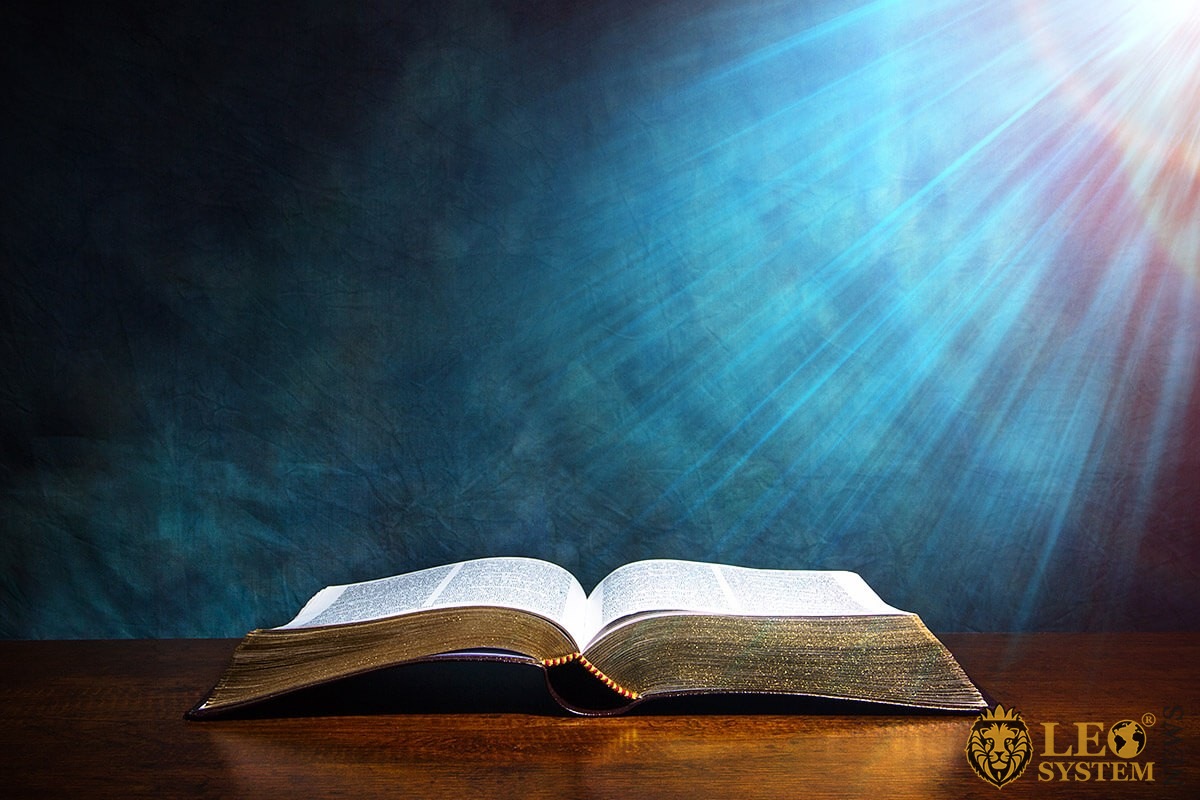The Simple Definition of Religion.
Religion is a structured system of beliefs and rituals which center on a supernatural being or several beings.
This is a great place to start our exploration but it is so much more complex than that, as we hope to demonstrate in this article. Whether we accept it consciously, our own religious belief, or non-belief, will color our attitudes and how we define religion. How do people define religion has to take into account many factors.
Defining Religions by Time They Were Founded.
Defining religion a product of the background of the person who is doing the defining. His/her cultural background will often compromise their definition. For example, if we take the Abrahamic group of religions (those religions that trace their origins back to Abraham) we will see that whether or not adherents will accept other Abrahamic religions will depend where in the timeline they are positioned. The Abrahamic Religions are:
RELIGION – DATE FOUNDED – ADHERENTS – MOST WIDESPREAD – GROWTH 1970-2010
- Judaism – Founded 1800 BC – 14.0 million adherents – 4th Position – DOWN – 0.03%
- Christianity – Founded 4 BC – 2.4 billion adherents – 2th Position – UP – 2.1%
- Islam – Founded 570 AD – 1.9 billion adherents – 3th Position – UP – 4.23%
- Baha’i Faith – Founded 1844 AD – 7.3 million adherents – 1th Position – UP – 4.26%
Members of the Jewish faith would not accept Christianity, Islam, or Baha’i Faith as true.
Members of Christian Faith would not accept Islam of Baha’i as true.
Members of Islam would not accept Baha’i as true.
Members of Baha’i Faith see all Abrahamic religions, and others, as true.
From this, we can see that as each Abrahamic religion was founded, so they accepted that previous one are true. Even later, after the newer Abrahamic religion had spread and often overtaken them, they would still not accept their truth.
Cults, Sects, and Religions.
There are several types of religious organization. When sociologists try to study religion, they feel the need to classify different religious organizations into convenient classifications. These may include:
- Religion;
- Ecclesia;
- Denomination;
- Sect;
- Cult.
Whilst people often regard these classifications as separate and disconnected, in reality they are part of an ongoing process. Leading from cult to Religion, with each step having a greater influence on society. Deciding which group a religious movement belongs to can be quite controversial and lead to dispute.
Nearly every religion started out life as a cult and progressed through the stages. This is forgotten by mainstream believers, who will often regard cults as being evil.
If an alien were to view a Christian Monastery where the monks give up virtually all freedom to devote themselves to a religious life and a cult where people enter a community and give up most of their freedom to follow a new religion, they would see no difference. However, society will regard the two as being very different.

This is key to how do people define religion? Your individual or societal norms will give a bias towards what you know and understand.
Cults.
A cult will often be formed around a charismatic individual (we could describe Christ as that) and will grow despite the hostility that everyday society normally exhibits to them. Most of these cults will fall apart themselves, and often when the charismatic leader dies they will just crumble away.
The term cult has become tainted by certain extreme groups which captured the attention of the media and the term cult stopped being an acceptable word to use to describe most of these groups. The term New Religious Movement has grown to be a more acceptable term. Cult is retained for extreme groups that may involve violence, suicide, or sexual abuse.
Sect.
A sect is normally a breakaway from an established religion. Often seen by its members as a renewal of that religion. They normally come about over some disagreement in doctrine. Many will simply fade away, but others will grow into denominations. Christians Sects that became Denominations include the Methodists and Baptists. An example of an Islamic sect that followed this route was the Babi Movement, who suffered appalling abuse when they split away from Islam. This Babi Faith eventually was transformed into the Baha’i Faith, which grew into a major world religion.
A feature of both sects and cults is that they tend to believe that they are the only true path, others are all mistaken.
Denominations.
Denominations may grow to large size and take on many of the features of the group it broke away from, however a denomination does not build affiliations with a state like a mainstream religion does. A denomination, while claiming it has the best path, will usually acknowledge the truth in other denominations too.
Ecclesia.
Ecclesia are mainstream religions that may be so entrenched in a nation that there is some overlap with the state. Examples are Great Britain, where the monarch is head of the Church of England and Bishops are allocated a number of places in the House of Lords (Senate). Iran has clerics and the government is controlled by Shi’a clerics.
Personal Non-Religious Beliefs.
In the time of the early religions there was no obvious and well-understood science. Some people describe science as a belief system. Since these early religions were found at a time when science was not generally understood, there are naturally some conflicts between science and religion. Evolution, the Big Bang, Homosexuality, and so on. In the USA, we have great debates between creationists and evolutionist within the Christian community. Certain denominations take a stricter view on homosexuality than others.
Depending on their own personal non-religious views, some people will have great difficulty accepting that religion can be true, and this will also be a factor in resolving how do people define religion?
Summary.
Defining a religion is no longer a matter of what we said in the first paragraph, “Religion is a structured system of beliefs and rituals which center on a supernatural being or several beings.” When we define a religion have to take into account our own personal bias, what stage a religion may be at cult, sect, denomination, or Ecclesia. Whether we are being influenced by when the religion was founded. If it was founded after our own religion, then we may regard it as a threat and that it makes our own faith irrelevant. (Remember the Abrahamic religions).
This topic is not one where people will easily change their views but hopefully some of the information we have discussed in this article will give you food for thought into how you define religion.
































